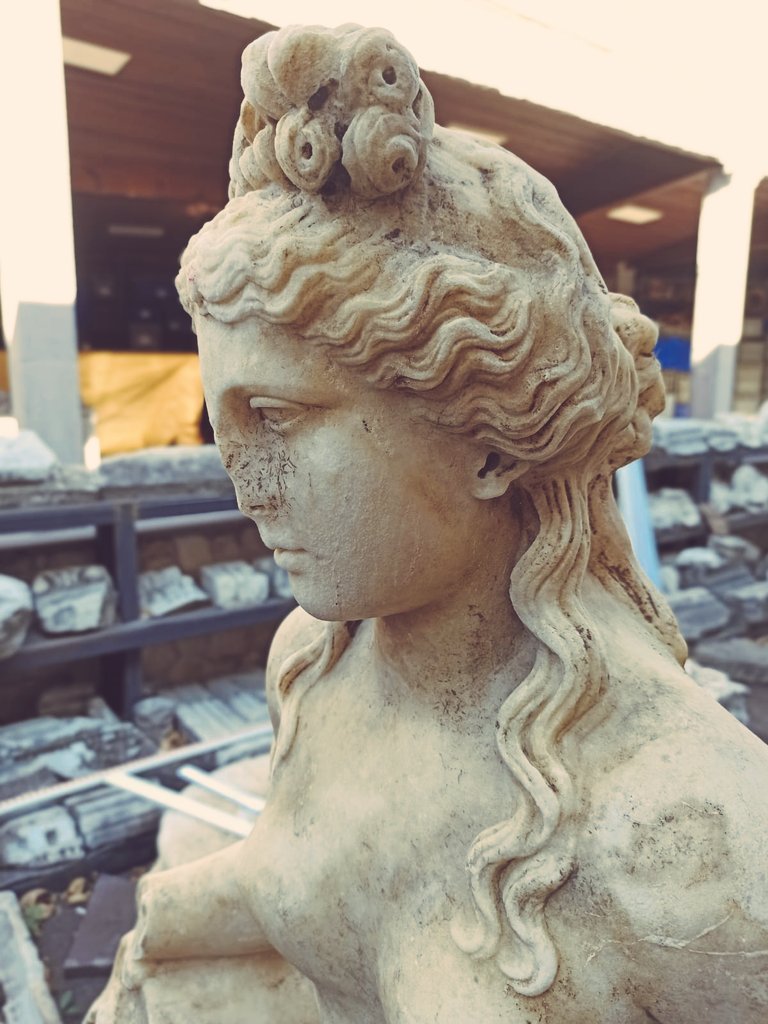Archaeologists have found a beautiful life-sized statue of a water nymph estimated to be 1,800 years old. The ancient statue was discovered during excavations in the ancient city of Amastris (modern Amasra), located on the Black Sea coast of Anatolia.

A beautiful marble statue of a water nymph has been found in the ancient city of Amastris. Credit: Excavations and Research Department of the General Directorate of Cultural Heritage and Museums of the Ministry of Culture and Tourism
Founded with the name Sesamos in the Greek colonial period, the Castle is the most significant structure in the ancient city of Amastris. The Amastra castle was built during the Roman period. managed to defend its strategic position in the region from the Hellenistic Period until the Middle Ages, and it is naturally a popular tourist attraction.

Credit: Excavations and Research Department of the General Directorate of Cultural Heritage and Museums of the Ministry of Culture and Tourism
Archaeologists excavating in the area can make many valuable and unusual finds. During previous excavations, scientists unearthed, for example, a pyramidal stone talismanic amulet.
The amulet, which has never been seen in the region, is the only example found in the Roman-era layer during the excavations in Anatolia.
“It is a unique artifact that was found in the middle of the 2nd century layers inside a marble Roman structure and dated to the 2nd century. There is a figure at the base of the work. From now on, we will try to find out who was the person carrying it. Was it a priest or a religious official?” Fatma Bagdatli Pine, from the Bartın University’s Archaeology department, told the Hurriyet Daily News.

Pyramidal stone talismanic amulet discovered in the ancient city of Amastris. Image credit: Hurriyet Daily News
During the latest archaeological dig, scientists found a marble statue of a water nymph hidden about three meters below the surface.

Ruins of the ancient city of Amastria. Credit: Excavations and Research Department of the General Directorate of Cultural Heritage and Museums of the Ministry of Culture and Tourism

Credit: Excavations and Research Department of the General Directorate of Cultural Heritage and Museums of the Ministry of Culture and Tourism
“During our Bartin, Amasra, Gymnasium excavations, we discovered a 1.53-centimeter high statue dating back to the 2nd century AD and considered it to be a Nymph (water nymph),” the Excavations and Research Department of the General Directorate of Cultural Heritage and Museums of the Ministry of Culture and Tourism said in a statement.





